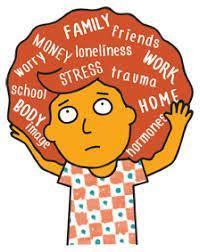EBD (Emotional/Behavioral Disorder)

DEFINITION
Emotional/Behavior Disorder (E/BD) means a condition exhibiting one or more of the following characteristics over a long period of time and to a marked degree that adversely affects a child’s educational performance:
(A) an inability to learn that cannot be explained by intellectual, sensory, or health factors: (B) an inability to build or maintain satisfactory interpersonal relationships with peers and teachers: (C) inappropriate types of behavior or feelings under normal circumstances: (D) a general pervasive mood of unhappiness or depression: and (E) a tendency to develop physical symptoms or fears associated with personal or school problems.
TYPES
- Anxiety disorders
- Bipolar disorder
- Conduct disorders
- Obsessive-compulsive disorder
- Psychotic disorders
- Depressive disorders
POSSIBLE CAUSES
- Heredity
- Brain disorder
- Diet
- Stress
- Family functioning
However, researchers have not found that any of these factors are the direct cause of behavioral or emotional problems.
According to the National Alliance on Mental Illness (NAMI), mental illnesses can affect persons of any age, race, religion, or income. Mental illnesses are not the result of personal weakness, lack of character, or poor upbringing. Mental illnesses are treatable. Most people diagnosed with a serious mental illness can experience relief from their symptoms by actively participating in an individual treatment plan.


